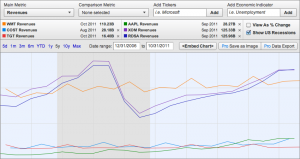During the last several years I’ve had the opportunity to see great leaders in action and the misfortune to see great deceivers at work. Both have one characteristic in common. Many would call it charisma, but I’d like to expand on what I think that “charisma” thing is.
Pause for a moment. Think about the fact that you’re giving me the opportunity to paint a reality for you. It’s my perception of reality, but by taking it on board and fully understanding the way I see things, you’re giving me the opportunity to mould and shape your reality. If you read this whole blog entry you’re going to have devoted a full 2 to 5 minutes of your conscious thought to my perception of reality. And whether you like it or not you’re going to take some of it on-board.
Great leaders and great deceivers are given a constant flow of opportunities to project their perception of reality and their vision for a future reality on large numbers of people. They alter the way a large group of people see the the world and the way these people think the world should be.
Ever wondered why Germany followed Hitler? Those screaming German speeches weren’t gibberish. They were rousing calls to arms with a believable and powerfully delivered rationale behind the call.
These speeches, or put in different terms, these opportunities Hitler was presented with to impose his perception of reality and his vision for a future on large groups of people, allowed him to influence an entire nation to go to war and eventually carry out some of the most awful atrocities in history.
So the lesson would appear to be “be careful who you lend your ear to”. But it’s a little more complex and more difficult that simply being careful. When others acknowledge someone as a leader, celebrity, genius, as talented and so on, it has a big influence on us as individuals and our default behavior as Cialdini writes in “Influence”, is to go along with the crowd.
“You say his a violin virtuoso, well he must be”, “You say this is a ’82 bottle of Latour’, well it must be spectacular”.
On a side-note, a friend once did an experiment where he sabotaged an already open bottle of excellent wine by decanting it and pouring in a very cheap wine. He watched the wine enthusiasts drink the sabotaged bottle and rave about how clearly excellent the wine is.
Social proof is a powerful phenomenon and if a group of people or respected organization acknowledge someone, they’ve given them a platform for “reality influence” or to create a “reality distortion field” if you’re a Steve Jobs fan.
If you’re a leader, I hope you’ve gained a greater understanding of how privileged you are to have the attention of groups of people. If you’re a listener, I hope you’ll learn from history and be careful who you grant access to your vulnerable and valuable attention.
